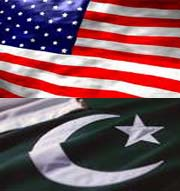Afghanistan: Wikileaks and the Pentagon's Deceptive Response
 Monday, October 18, 2010 at 6:19 |
Monday, October 18, 2010 at 6:19 |  Scott Lucas in
Scott Lucas in  Afghanistan,
Afghanistan,  EA Afghanistan-Pakistan,
EA Afghanistan-Pakistan,  EA USA,
EA USA,  US Politics
US Politics  Remember the fuss this summer, after Wikileaks released almost 92,000 documents on the US military intervention in Afghanistan, when the Pentagon and US military said that the primary effect of the published material would be the exposure of troops and those helping the Americans, putting their lives at risk at the hands of the Taliban?
Remember the fuss this summer, after Wikileaks released almost 92,000 documents on the US military intervention in Afghanistan, when the Pentagon and US military said that the primary effect of the published material would be the exposure of troops and those helping the Americans, putting their lives at risk at the hands of the Taliban?
The chairman of the Joint Chiefs of Staff, Mike Mullen, spared no words accusing Julian Assange, the founder of Wikileaks, "Mr. Assange can say whatever he likes about the greater good he thinks he and his source are doing, but the truth is they might already have on their hands the blood of some young soldier or that of an Afghan family."
At the time --- while not ignoring the possibility --- it felt primarily like a campaign by the Obama Administration and the Department of Defense, not only to limit the damage of the documents but to turn the story into one of Wikileaks' responsibility rather than the complications of American military action. At the start of 2010, the US Government had been slow to respond to Wikileaks' presentation of the "Collateral Murder" video, showing the apparent gunning down of Iraqi civilians by American planes. This time would be different.
This weekend, however, there was a twist in the Obama Administration's tale. A 16 August letter from Secretary of Defense Robert Gates to Senator Carl Levin, the head of the Armed Services Committee, emerged: "The review [by the Department of Defense] to date has not revealed any sensitive intelligence sources and methods compromised by the disclosure."
 CNN,
CNN,  Carl Levin,
Carl Levin,  Julian Assange,
Julian Assange,  Mike Mullen,
Mike Mullen,  Robert Gates,
Robert Gates,  Wikileaks
Wikileaks 



